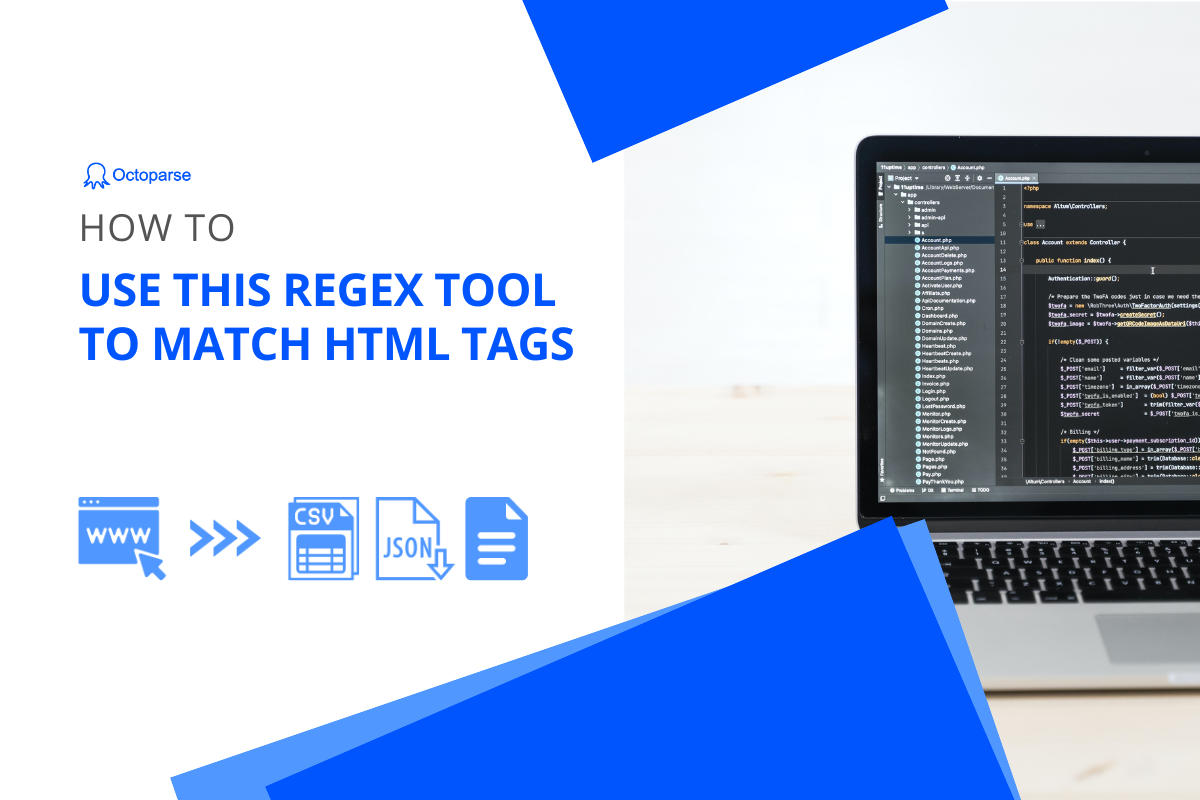
Understanding the Art of HTML Parsing with Regular Expressions
When you first encounter the complex world of web data extraction, regular expressions (regex) might seem like an intimidating labyrinth of cryptic symbols and intricate patterns. But what if I told you that regex is actually your most powerful ally in transforming messy web data into structured, actionable information?
As a seasoned web scraping expert, I‘ve spent years navigating the intricate landscape of HTML parsing, and regular expressions have been my trusted companion through countless data extraction challenges. This comprehensive guide will demystify regex, transforming it from an obscure technical tool into your go-to strategy for precise HTML tag matching.
The Evolution of HTML Parsing and Regular Expressions
The journey of web data extraction is deeply intertwined with the evolution of HTML and pattern-matching technologies. Regular expressions emerged as a revolutionary approach to text processing, offering unprecedented flexibility in identifying and extracting specific patterns within complex document structures.
Early web developers quickly recognized regex‘s potential in parsing HTML, but the technique was far from perfect. Initial implementations were often fragile, struggling with nested tags, inconsistent HTML structures, and performance limitations. However, as web technologies advanced, so did our regex techniques.
Why Regex Remains Relevant in Modern Web Scraping
Despite the emergence of sophisticated HTML parsing libraries, regular expressions continue to offer unique advantages. They provide lightweight, language-agnostic solutions for pattern matching that can be implemented across multiple programming environments.
Consider a scenario where you need to extract specific information from a diverse range of web pages. Traditional parsing methods might require complex, page-specific logic, while a well-crafted regex pattern can elegantly handle multiple variations with minimal code.
Fundamental Regex Patterns for HTML Tag Matching
Let‘s dive into the core techniques that will transform your HTML parsing capabilities. Understanding these patterns is like learning a new language – one that speaks directly to the structure of web documents.
Basic Tag Matching Strategies
The simplest regex pattern for matching HTML tags looks deceptively straightforward:
[regex = r‘<[^>]+>‘]This pattern captures any HTML tag by matching everything between ‘<‘ and ‘>‘ characters. While basic, it forms the foundation of more complex extraction techniques.
import re
html_content = ‘<div class="example">Sample Text</div>‘
tags = re.findall(r‘<[^>]+>‘, html_content)
print(tags) # Outputs: [‘<div class="example">‘, ‘</div>‘]Advanced Attribute Extraction
Real-world web scraping demands more nuanced approaches. Consider a pattern designed to extract specific attributes:
[regex = r‘<a\s+href="([^"]+)"[^>]*>‘]This regex not only matches anchor tags but also captures their href attribute values, enabling precise link extraction across different HTML structures.
Performance Optimization in Regex HTML Parsing
While regex offers incredible flexibility, it‘s crucial to implement patterns that balance precision with computational efficiency. Each regex pattern introduces processing overhead, and poorly constructed expressions can significantly impact scraping performance.
Strategies for Efficient Pattern Design
Use Non-Greedy Quantifiers
Greedy quantifiers () consume maximum possible characters, while non-greedy quantifiers (?) minimize unnecessary processing.Compile Regex Patterns
Pre-compiling regex patterns reduces overhead in repeated matching scenarios:
import re
# Compile once, reuse multiple times
tag_pattern = re.compile(r‘<(\w+)[^>]*>(.*?)</\1>‘)- Leverage Specialized Parsing Methods
Different programming languages offer optimized regex implementations. Python‘s re module, JavaScript‘s RegExp, and PHP‘s preg_match() each provide unique performance characteristics.
Security Considerations in HTML Parsing
Web scraping isn‘t just about extracting data – it‘s about doing so responsibly and securely. Regex patterns can inadvertently introduce vulnerabilities if not carefully constructed.
Preventing Regex Denial of Service (ReDoS)
Maliciously crafted input can cause catastrophic backtracking in regex engines, leading to potential system vulnerabilities. Implementing timeout mechanisms and avoiding complex, nested patterns helps mitigate these risks.
def safe_regex_match(pattern, text, timeout=0.5):
try:
return re.match(pattern, text, re.DOTALL)
except re.error:
return NoneCross-Language Regex Implementation
One of regex‘s most powerful attributes is its relative consistency across programming languages. While syntax might vary slightly, core matching principles remain uniform.
Comparative Regex Implementations
Python:
import re pattern = r‘<(\w+).*?>(.*?)</\1>‘JavaScript:
const pattern = /<(\w+).*?>(.*?)<\/\1>/g;PHP:
$pattern = ‘/<(\w+).*?>(.*?)<\/\1>/‘;
Real-World Web Scraping Scenarios
Practical application separates theoretical knowledge from true expertise. Let‘s explore a comprehensive product information extraction scenario that demonstrates regex‘s power.
def extract_product_details(html_content):
name_pattern = r‘<h1 class="product-name">(.*?)</h1>‘
price_pattern = r‘<span class="price">\$([\d.]+)</span>‘
name = re.search(name_pattern, html_content)
price = re.search(price_pattern, html_content)
return {
‘name‘: name.group(1) if name else None,
‘price‘: float(price.group(1)) if price else None
}Conclusion: Embracing Regex as a Web Scraping Superpower
Regular expressions represent more than just a technical tool – they‘re a sophisticated approach to understanding and extracting information from the web‘s complex document landscape. By mastering regex, you transform raw HTML into structured, actionable data.
Your journey with regex is just beginning. Each pattern you craft, each challenge you overcome, brings you closer to becoming a true web data extraction expert.










